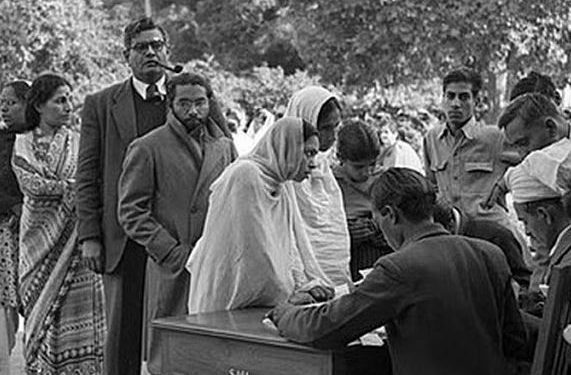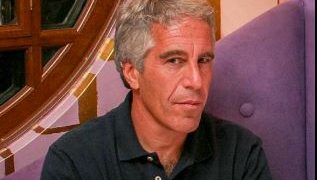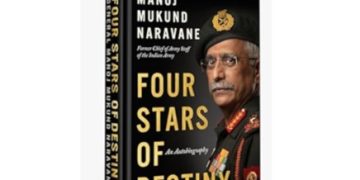New Delhi: A nascent Indian republic that still carried the scars of the country’s Partition and whose vast majority of voters were then illiterate executed an unprecedented democratic exercise in 1951-52, surmounting a host of challenges while proving naysayers wrong.
With 173 million electors and 1,874 candidates, the country’s first-ever parliamentary election after independence for 489 seats in the House of the People (Lok Sabha) was conducted by the Election Commission of India (ECI), then barely an year old.
The ECI, now gearing up for the 18th general elections to the Lok Sabha in 2024, had a mammoth task at hand in the 1950s, while navigating through demographic, geographic and logistical challenges.
Former chief election commissioner S Y Quraishi said the first general election of 1951-52 was then also the “largest democratic exercise conducted in the world”.
“Hats off to Sukumar Sen (the first chief election commissioner of India) who did it from scratch and did a good job. The exercise of such a scale was conducted without any prior experience, without any earlier infrastructure,” he told PTI.
And, indeed India pulled off the “great experiment” as it was dubbed back then in a short video produced on the election by the Films Division, which also mentions that mock polls were held prior to the actual exercise.
According to the “General Elections 2019: An Atlas”, published by the ECI, the first election began on October 25, 1951, and was spread over four months, with polling held on 17 days.
But during the preparations of the electoral rolls before beginning the exercise, the commission noticed that a large number of women voters had been enrolled in some states “not by their own names” but by the description of the relationship they bore to their male family members (e.G. A’s mother, B’s wife).
According to local customs, women in these areas were averse to disclosing their proper names to strangers. Instructions were thus issued that the name of an elector being an essential part of his or her identity, must be included in the electoral rolls, according to an official report on the first general elections published in 1955.
Public awareness was raised and special extension was given to have the actual name of such electors added.
“Out of a total of nearly 80 million women voters in the country, nearly two-to-eight million eventually failed to disclose their proper names, and the entries relating to them had to be deleted from the rolls. Practically, all such cases were from the states of Bihar, Uttar Pradesh, Madhya Bharat, Rajasthan and Vindhya Pradesh,” read the report.
Chandra Bhushan Kumar, a former chief electoral officer (CEO) of Delhi, said asking such women voters to declare their own names in the roll was a “very remarkable stand” that was taken by the then election commission.
“It was a tough decision in those days. But the Election Commission of India took this view and the result is now available to us. Now, in most of the locations, we see that women are voting in more numbers than even men, or their percentage is higher than male voters’ percentage,” he told PTI.
Kumar said a lot of things decided at that time have become “integral to our whole electoral process”, whether one looks at the idea of symbols or the indelible ink.
Painting of ballot boxes with different colours or assigning a separate ballot box for each candidate and to place a different mark each on such boxes had been tried in the past, but the commission decided in favour of the “symbol system” to tide over the constraint of low literacy rate and avoid confusion.
“The percentage of literacy in India being in the neighbourhood of 16.6 only, it would have been impossible for the vast majority of the voters who are illiterate to mark their votes on ballot papers with the names of the contesting candidates printed on them,” read the 1955 report.
The commission had also decided that the symbols should be familiar and easily recognisable by voters and that no object having any religious or sentimental associations such as a cow, a temple, the national flag, a spinning wheel should find a place in the list of approved symbols.
Unlike today’s ubiquitous “open hand” symbol of the Congress, in the maiden elections — which the party had won — it was allotted a symbol depicting “two bullocks with yoke on”.
Other national parties in the fray included the Socialist Party (tree symbol), the Kisan Mazdoor Praja Party (hut), the Akhil Bharatiya Ram Rajya Parishad (rising sun), the Bolshevik Party of India (a star) and the All India Bharatiya Jan Sangh (lamp/deep).
A total of 1,32,560 polling stations, with 1,96,084 polling booths, were set up throughout the country. Polling began from Himachal Pradesh before the snowfall season. The 1951-52 elections were held under the “first-past-the-post system”.
The ECI undertaking this nationwide exercise also faced challenges of difficult terrains such as in Rajasthan that had vast desert areas with no roads and lacked communication facilities.
“The difficulties experienced in Jaisalmer and some other desert districts such as Jodhpur were solved by arranging transport of polling parties on camels. For this, a large number of camels had to be hired and each polling party moved like a caravan,” the report read.
For polling, ‘dak’ bungalows and even private buildings were used wherever public buildings proved insufficient.
Former CEC Quraishi, also the author of “An Undocumented Wonder: The Making of the Great Indian Election”, said there were many, mostly western critics, who thought that the first election was a “bad experiment”.
“At that time, about 84 per cent people were illiterate in India. Their observation was, how can illiterate people participate in democracy. And, they predicted that we will flop and fail. Besides illiteracy, poverty, social divisions, communal divisions after the Partition, were also there… But we proved the prophets of doom wrong in no time with the very first election,” he said.
According to the report, out of a total of 17,32,13,635 voters, 8,86,12,171 cast their votes for elections to the Parliament. “The over-all percentage of voting was thus 51.15 which is by no means unsatisfactory.”
The cut-off age then to become a voter was 21 years.
The seminal report also states, “Never before has such a vast electorate gone to the polls. The future of the democratic way of life in India depended very largely on the success of the experiment as also on the extent to which these elections could evoke public enthusiasm and satisfaction.”
By Kunal Dutt






































